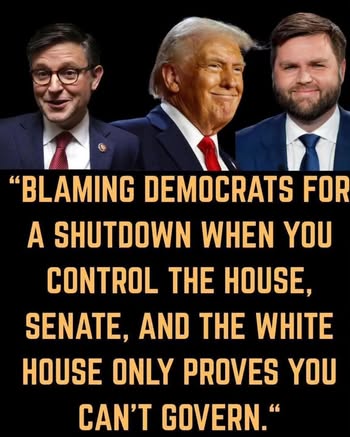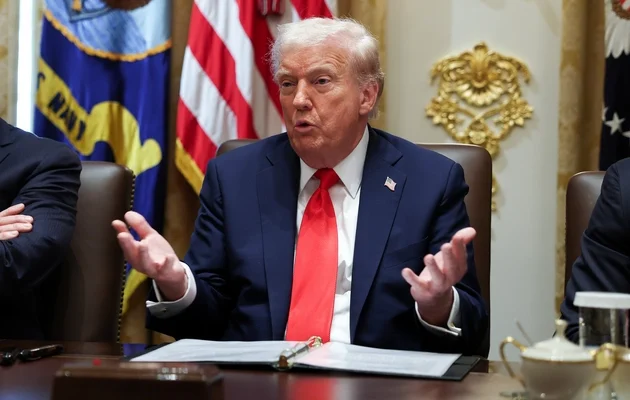In a sharply worded remark on Wednesday, Trump reaffirmed plans to target federal programs favored by Democrats after the Senate again failed to advance a short-term funding measure to avert a government shutdown.
Speaking at a Cabinet meeting at the White House, Trump said, “We’re only going to cut Democrat programs,” casting the move as a response to obstruction by Senate Democrats in the appropriations process. He added that only those programs “unpopular with Republicans” would be on the chopping block, without offering specific names or dollar amounts.
The comments come amid widening partisan gridlock: Senate Democrats blocked the latest stopgap funding bill, refusing to accept the Republican-authored measure unless it included extension of Affordable Care Act subsidies—an insistence Republicans have repeatedly rejected.

The impasse marks a dramatic escalation in the standoff over how to fund the federal government going forward. House Republicans have already passed a clean continuing resolution, but it cannot proceed in the Senate without Democratic support.
In recent days, the Trump administration has frozen or canceled funding to projects in states with Democratic leadership—moves interpreted by critics as punitive measures. Among them: pausing $2.1 billion in transit and infrastructure work in Chicago, halting climate-related energy projects across 16 states, and canceling billions in federal transit funding in New York.

Aides to Trump framed those actions as part of a broader strategy: when Congress cannot agree to fund the government, the administration will unilaterally cut programs it deems partisan. Russ Vought, director of the Office of Management and Budget, has said the administration is already reviewing which “Democrat agencies” to target.

Democrats reacted forcefully. Senate Minority Leader Chuck Schumer accused the administration of “political retribution” and vowed legal challenges should cuts disproportionately affect Democratic states. Others criticized the targeting of popular programs as an abuse of executive power.
Some governors in Democratic-led states have expressed concern over the viability of continuing essential services, especially if federal reimbursements for shutdown costs are withheld.

Legal experts say the scope of cuts may be challenged in court if they violate appropriation laws, constitutional constraints, or protections for mandatory spending—like Social Security, Medicare, or Medicaid, which cannot legally be cut mid-year without congressional action.
But for now, the administration’s public posture is clear: unless Congress breaks the deadlock, popular programs with Democratic support are in the crosshairs.

